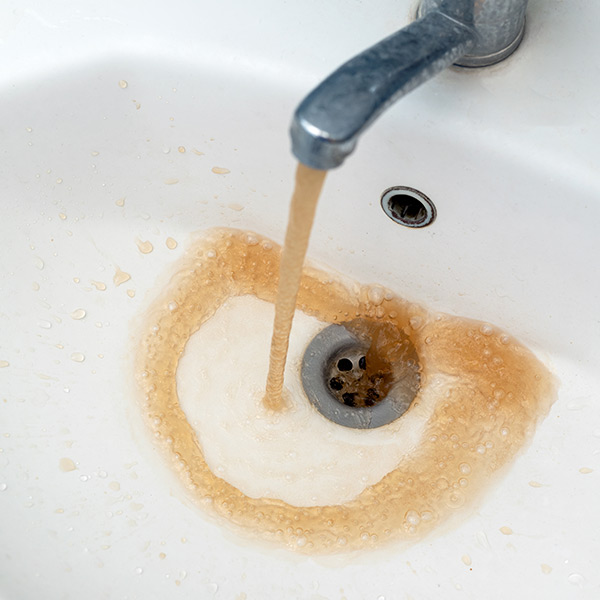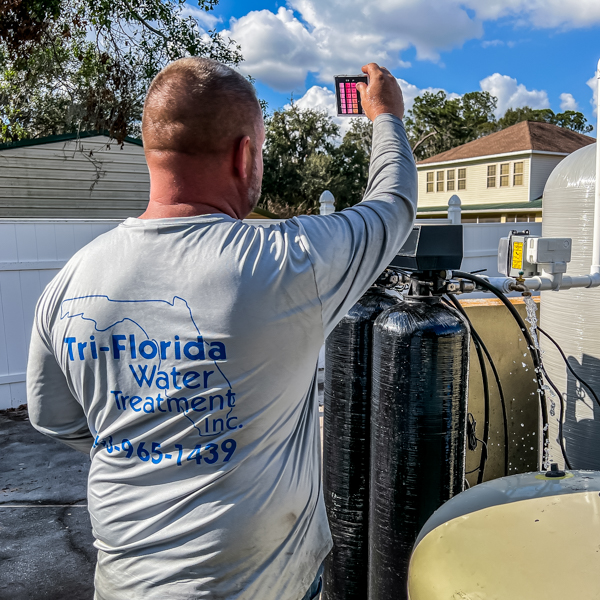5 Signs Your Water Well is Contaminated
City water is regulated and tested, so consumers have some safety assurance. However, well water doesn’t have the same protection, and sometimes, the water becomes contaminated and unhealthy. In this post, we look at the five most common signs that your well water is contaminated and what you can do about it.
 5 Signs Your Well Water is Contaminated
5 Signs Your Well Water is Contaminated
Keep an eye on your well water for the following signs of contamination.
Murky Appearance
Water should be crystal clear. So, if it appears cloudy or muddy, it could mean sediment, clay, silt, or dirt has infiltrated the water supply.
Unusual Taste
If your water suddenly tastes metallic, soapy, salty, or like chemicals, it means there are unwanted substances, like agricultural chemicals, alkaline minerals, road salt, or sewage, seeping into your water supply.
Foul Odors
A rotten egg or other foul odor is a tell-tale sign of sulfur bacteria or hydrogen sulfide gas contamination. These contaminants can cause serious health issues, like headaches, nausea, and delirium.
Unexplained Illness
If you or members of your household suddenly become ill with symptoms like fever, cramping, diarrhea, nausea, or fatigue, it could be due to your water supply.
Discoloration
As mentioned, water should be clear. So if it appears orange, brown, or red, it could contain tennis or iron. These contaminants aren’t harmful in small quantities, but an excess could damage your pipes.
Common Contaminants Found in Well Water
Just because your well water is safe today doesn’t mean it will hold true tomorrow. Here are the most common contaminants that could show up in your water.
Microorganisms
These include bacteria, viruses, and parasites from sewage and waste.
Nitrates and Nitrites
These are often found in fertilizer, sewage, and waste.
Heavy Metals
Arsenic, antimony, cadmium, chromium, copper, lead, selenium, and more could be present in your water.
Organic Chemicals
Common organic chemicals come from pesticides, dyes, paints, pharmaceuticals, solvents, and disinfectants.
Radionuclides
Uranium and radium are harmful radioactive elements that can enter your well water.
Fluoride
Fluoride is beneficial in small amounts, and most municipal suppliers add it to the water supply. However, too much fluoride can cause neurological problems, high blood pressure, skeletal weakness, seizures, and tooth decay.
How to Protect Your Well Water Against Contamination
Unfortunately, well water contamination is more common than you think. According to the CDC, “About 1 in 5 sampled private wells were found to be contaminated at levels that could affect health.” With that in mind, let’s look at ways to protect yourself.
Regular Water Testing
The most important thing you can do to maintain healthy water is to perform regular tests. Home testing kits are available, but it’s recommended that you get the water tested by a certified laboratory to get a complete picture of what’s in your water and if it meets safe drinking standards.
Prevent Surface Contamination
If possible, make sure your well is constructed properly to prevent surface water from getting in. The well cap should be well-fitted and tightly sealed to prevent debris, insects, and other contaminants from getting in.
Be Mindful About Chemical Usage
Be cautious when using chemicals like fertilizer, pesticides, and herbicides around your property, especially near the well.

Test After Disruptions
We mentioned the importance of regular testing. Still, it’s equally important to test the water after a flood, heavy rain, or other event that could introduce contaminants into the well.
Invest in a Filter or Purifier
If you want to ensure your water is safe to drink, experts recommend installing a water filter or purifier. You can opt for a carbon filter, sediment filter, UV filter, or a multi-stage filter that combines these technologies to ensure your water is contaminant free.
Call Tri-Florida Water Treatment
If you’re concerned about the safety of your well water, call our experts to discuss your filtration and purification options. We are a Department of Environmental Protection Certified water plant operator with over 30 years of industry experience. Call us today for a free in-home water analysis at 863–965–1439.
